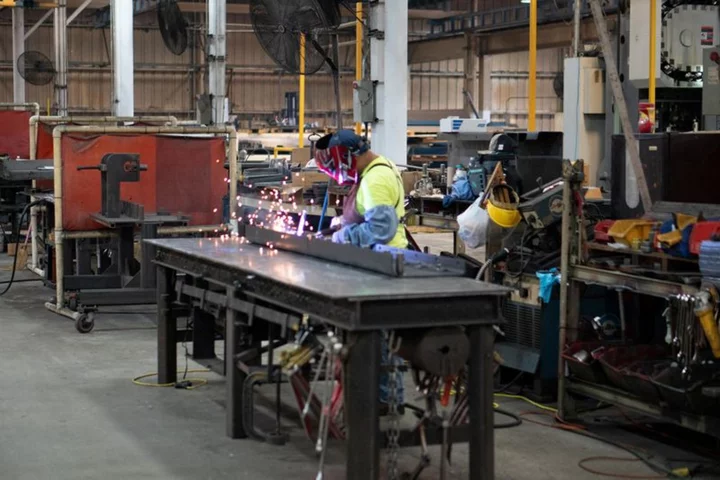WASHINGTON New orders for U.S.-made goods increased less than expected in May as a surge in civilian aircraft orders was partially offset by sluggishness elsewhere amid higher interest rates that are eroding demand.
Factory orders rose 0.3% after advancing by the same margin in April, the Commerce Department said on Wednesday. Economists polled by Reuters had forecast orders rising 0.8%. Orders increased 1.1% through May from a year earlier.
In addition to the higher interest rates, manufacturing, which accounts for 11.1% of the economy, is being constrained by spending shifting to services from goods, typically bought on credit as well as businesses carefully managing inventories in anticipation of weak demand.
The Institute for Supply Management's manufacturing PMI dropped in June, marking the eighth straight month that the index stayed below the 50 threshold, which indicates contraction in manufacturing. That is the longest such stretch since the Great Recession.
Some pockets of strength remain, however, amid solid demand for goods like transportation equipment, machinery as well as electrical equipment, appliances and components.
Orders for transportation equipment increased 3.8% in May after accelerating 4.8% in the prior month. Civilian aircraft orders soared 32.8%, but motor vehicle orders fell 0.6%.
Orders for machinery surged 1.2%, while bookings for computers and electronic products rose 0.3%. Orders for electrical equipment, appliances and components rebounded 1.9%.
Excluding transportation, orders fell 0.5%. Shipments of manufactured goods rose 0.3%. The inventory of manufactured goods at factories fell 0.2%. Unfilled orders at factories increased 0.8%.
The Commerce Department also reported that orders for non-defense capital goods excluding aircraft, which are seen as a measure of business spending plans on equipment, rose by 0.7%, unrevised from last month's estimate.
Shipments of these so-called core capital goods increased 0.3%. They were previously reported to have gained 0.2%. Business spending on equipment has contracted for two straight quarters, the first back-to-back declines since mid-2020.
(Reporting By Lucia Mutikani)









